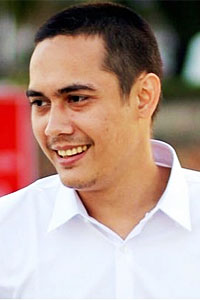A budget of US$2.6 million to ensure red-carpet treatment for North Koreans at the Winter Olympics is just one sign of South Korea's eagerness to revive dialogue with its dangerous neighbour. The North appears equally keen, based on the high-profile visit to Pyeongchang by Kim Yo-jong, the Supreme Leader's sister and Pyongyang's PR queen.
While athletic medals are out of the question, North Korea has been going for gold when it comes to creating international buzz. The feel-good factor might last only a few weeks, but the world has welcomed a diversion from the nuclear brinkmanship and mud-slinging between Donald "Dotard" Trump and Kim "Rocket Man" Jong-un.
Not all South Korean citizens are happy to see some 22 athletes and 400 North Korean supporters and performers in Pyeongchang. Some have staged protests to remind the world to be wary of the regime on the other side of the 38th Parallel.
South Korean Unification Minister Cho Myoung-gyon has described the North's participation in the Games as a milestone that could open doors to building peace on the Korean Peninsula. However, other visits in the past bore no fruit, so why would this time be any different?
Last year North Korea fired 23 missiles in 16 nuclear tests, most recently on Nov 29 when a missile landed in Japanese waters. But when Seoul sent out its Olympic invitation, Pyongyang suddenly turned on the charm.
Kim Yo-jong, who is in charge of her brother's image, did not miss a chance to manipulate the media by bringing with her a handwritten note from Mr Kim, said to contain an invitation for South Korean President Moon Jae-in to visit Pyongyang to talk.
Mr Moon said the Koreas should "make it happen", but he also encouraged the North to return to negotiations with the United States. He is aware, after all, that he will be judged harshly by his superpower ally if he appears to concede anything. Mr Moon even gave Mr Trump credit for creating the political conditions for talks between the two Koreas.
The fact that Pyongyang is suddenly playing nice "could be the result of US-led sanctions and pressure", he added, and I tend to agree.
Mr Trump, of course, didn't miss a chance to stroke his own ego when he declared last month that "if I weren't involved, they wouldn't be talking about the Olympics right now". But will they be talking about something more meaningful next month or next year? That's the big question.
Kim Jong-un has demonstrated a much keener awareness than his father of the propaganda value of sports and entertainment. His surprisingly conciliatory New Year message led to an official invitation and a visit to the South by a former lead singer of Moranbong, the all-female music group whose members are selected by Mr Kim.
This month, all the talk has been about North Korea's "army of beauties" -- 200 young female cheerleaders said to be handpicked from the North's elite universities. Their mission in Pyeongchang was to charm their southern counterparts, and they seem to have succeeded.
"They look just like us," Kim Mi-hyun, 59, told the Straits Times last week. "Looking at them makes me yearn for reunification."
The desire for reunification remains strong in South Korea, especially among older people. However, it might surprise some outsiders that there is a cultural divide between the older and younger generations in the country.
As the unified women's ice hockey team took to the ice last week, Kim Jung-ah, a 22-year-old student from Seoul told the Straits Times, "We look the same but I feel bad because they don't have any freedom", referring to North's army of beauties. Lee Min-woo, a 20-year-old student from Seoul added, "They are like the military. I pity them. I haven't given any thought to reunification."
The government in Seoul will probably have to answer to local protesters as to why it has used funds from the unification ministry to pay for accommodation and food for Pyongyang's cheer squad and performers to showcase their propaganda in Pyeongchang. But bear in mind that the South also paid the expenses when more than 600 North Koreans took part in the 2002 Asian Games in Busan.
Nevertheless, more explanations will be needed if Mr Moon actually accepts Mr Kim's invitation to visit the North. Washington will certainly ask some questions, but either way, it is the Supreme Leader who is smiling right now as his charm offensive has hit more targets than any missiles he launched last year.
